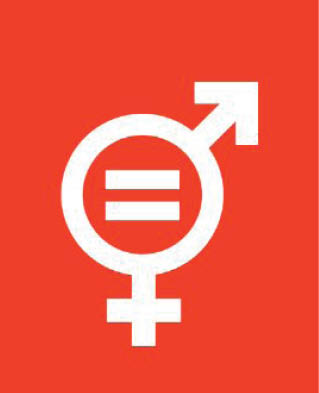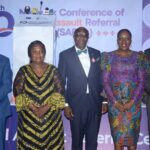The Minister of Women Affairs, Dame Pauline Tallen, Deputy Senate President, Ovie Omo-Agege, and the Christian Aid Nigeria have blamed the poverty in the country on unequal distribution of power and resources between men and women.
They said this on Tuesday in Abuja at the inaugural Annual Gender Justice Conference with the theme ‘Transformative Gender Justice as a Paradigm for Sustainable Development’, organized by the Christian Aid Nigeria.
Omo-Agege represented by his Special Adviser on International and Inter-Parliamentary Affairs, Ms. Mabel Demokun, said that the topic was timely and served to draw attention to the challenges of gender justice and help provide the necessary responses.
According to him, connecting gender equality with sustainable development is important for several reasons because it is a moral and ethical imperative.
“There is no doubt that unequal distribution of power and unfair abuses of power between men and women are at the heart of poverty. The most pervasive inequalities in the world is that between women and men. Gender justice is, therefore, very important.
“The determinations to achieve a just and sustainable future could not ignore the rights, dignity and capabilities of half the world’s population.
“It is critical to redress the disproportionate impact of economic, social and environmental actions on women and girls, which undermine the enjoyment of their human rights and their vital roles in sustaining their families and communities.
“Most significantly, it is important to build up women’s capabilities to create better synergies between gender equality and sustainable development outcomes,” he said.
He therefore, charged all stakeholders to work together to deal with the obstacles that stood in the way of women with a view to bringing them on a level-playing spot with their male counterparts.
On her part, the Minister of Women Affairs, Dame Pauline Tallen, represented by Principal Community Development Officer, in the ministry, Mrs. Julie Akharia, said that justice is one of the critical factors required for social-economic development of any nation.
Tallen said that justice demanded that the weak which included the vulnerable social groups such as children, women and girls were protected against every explorative tendency.
“One of the best ways to achieve this is to enshrine the rule of law at all times. The theme cannot be more apt than now as the Nation is gearing up for the election of new leaders,” she said.
Tallen said that her ministry believed strongly that gender justice would not be achieved without gender equality where Women, Girls and other vulnerable groups were given their rightful place to contribute to the development of Nigeria.
The Country Director, Christian Aid International Nigeria, Mr. Temitope Fashola, said that poverty is an injustice and an outrage against humanity and Christian Aid was in a hussy to end it.
He said, “As Identified in our 2022 Poverty Report which was recently launched globally and we are presenting today, the causes of poverty are complex and there is no single route to ending it.
“While we have witnessed phenomenal progress in the fight against poverty in the 75 years of Christian Aid’s existence alongside our partners, there is still a lot to be done.
“We have also learnt lessons and our experience has confirmed at least two things: firstly, lasting solutions to poverty must be built on action to tackle imbalances of power and on the agency of people living in poverty.
“Secondly, success in the fight against poverty hinges on broad movements for change.’’
Fashola said that key part of tackling gender injustice was through seeking to be gender equality and social inclusion transformative in all programs.
He said that gender injustice and reluctant exclusion was among the most prevalent forms of social inequality and in injustice in Nigeria.
He said that it was no longer news that women and girls suffer the least access to opportunities that could enable them fulfill their potential.
He added that to compound this, women and girls were poorly represented in decision making circles therefore issues faced by them were not duly prioritize by the male dominated political class and duty bearers.
This, he said was because they do not have the lived experiences of the discrimination and barriers that women have to face.
Fashola said that gender discrimination was deep-rooted and pervasive in cultural, religious corms and practices leading to gender inequality in both formal and informal decision-making structures.
He said that gender injustice also manifested itself in the perpetration of violence against women and girls, reduced access to decision making processes, unequal access to quality education, increased prevalence of early marriage among others.
He said, “This is hinged on our analytical framework of poverty, reaching the most in need, discriminations and exclusions are at the root of poverty, power, addressing social and cultural norms that keep the poor marginalized away from structures.

 Join Daily Trust WhatsApp Community For Quick Access To News and Happenings Around You.
Join Daily Trust WhatsApp Community For Quick Access To News and Happenings Around You.


